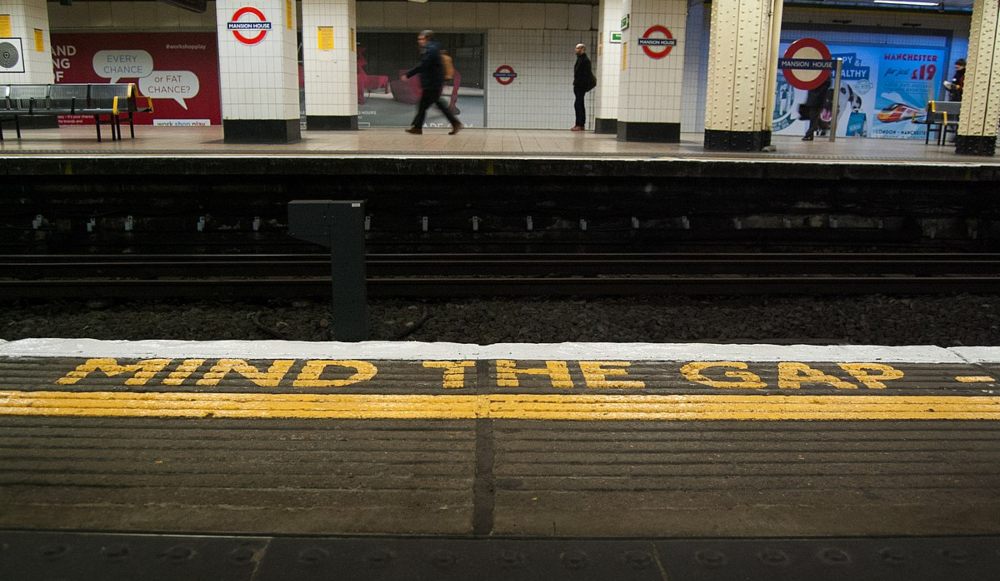
What are “mediating institutions”? The sociologist, Peter Berger, described them this way: “those institutions standing between the individual in his private life and the large institutions of public life.” They help bridge the gap between each of us and the overarching society that we live in. Some refer to this arena as “civil society,” the network of mostly voluntary associations the breadth and depth of which De Tocqueville considered America’s unique genius.
And this from the newsletter of the Acton Institute: “One of the most vital insights of modern social thought is the importance of mediating institutions–churches, schools, fraternal organizations, professional associations, and even clubs–for a free society. Not only are they effective, sometimes crucial, in providing services of all sorts, they are, as Tocqueville pointed out, a bulwark of freedom against the encroaching power of the state.” In totalitarian societies, this sector is repressed and eventually absent.
Libertarians tend to emphasize the role of “mediating institutions” as a bulwark against the state. But I think they also serve, and perhaps are even more needed, as a bulwark against very large, concentrated, global corporations. In any event, such institutions, not only mediate between the individual and large aggregates of power, they also are the arena in which most people find meaning for and in their lives.
In the world of churches, mainline Protestant churches tended to be mediating institutions, standing in the middle ground. But their hold on that ground and presence in our society is now much diminished, as is that of others mediating institutions, like public schools, the family, voluntary associations of all kinds.
True, there still are all of these things — including churches. But the dominant kind of church these days, the evangelical and the mega-church tend to be different in this way — they have hard boundaries. You are either in or you’re out. There’s not much fluidity. The boundaries are not porous as they have tended to be in mainline Protestant churches in their period of greater strength.
Tribalism is positive in the sense that it provides smaller associational levels of human engagement. But the hard boundaries feature, the “if you’re not with us, you’re against us,” changes the game. Such institutions may mediate between the individual and large power blocs, but they don’t bring people together despite or across their differences, whether of politics, class, education or others. Even those that today tout their “inclusivity” often have a very limited definition of that quality.
I think this is one way to describe our decay, if you will, as a society. Too few, strong mediating institutions grounded in a sense of basic trust and openness to one another; too many tribal groups with hard boundaries and the tendency to aggravate division among tribes.
My hunch is that tribalism is stirred by heightened levels of anxiety. Anxious, worried, jittery, we tend to look for security in a hard(er) boundaries group of some sort. That, or we become more isolated, on our own, alone. Neither is a great alternative.
My point, here, as often in my musings, is to put in a good word for a particular kind of church. The church that includes people of different political views and commitments, of different educational types, of varying social/ economic classes or categories, as well as varieties of virtue. My friend Ryan Slifka, a United Church of Canada pastor, quotes Archbishop Desmond Tutu, of blessed memory: “We may be surprised at the people we find in heaven. God has a soft spot for sinners. His standards are quite low.”
Churches do best when they avoid the extremes of either hard boundaries (you’re in or you’re out) or no boundaries (anything goes, belonging has no meaning) in favor of being centered, centered in the abiding and mysterious grace of God. That is another way of being a “mediating institution,” mediating the grace of God to sinners, which turns out to be the truly most inclusive category of them all.
Discover more from Post Alley
Subscribe to get the latest posts sent to your email.

I’ve been seeing casual comparisons between today’s politics and Germany’s 100 years ago. Maybe it would be worthwhile for the church to examine their history there, and resolve to do something different this time.
Ah, all churches are basically the same. Most “believers” don’t show up very often and don’t leave much in the collection plate. I think “mainline” Protestant churches often have nobody to blame but themselves for low attendance and even lower influence. Dead churches pretty much sums it up.
I’ve watched upperclass families show up at Unitarian churches with kids in tow, sign up for as much “free” community support for raising those kids as possible, and stop coming as soon as those kids are safe in college. They often tithe damn near nothing and seldom volunteer, even in programs their kids are in. Church is a place you get free stuff. Without the promise of “free stuff”, American Churches just don’t seem thrive. Evangelical churches know this. They promise a lot of free stuff. Most of it may not come true, but there’s always that one and one relationship with Jesus who might step in at any moment. Need at big job promotion? Jesus has your back! Remember the family that prays together stays together! Much better sales pitch than the “White Guilt” often taught in the Liberal mainline outfits.